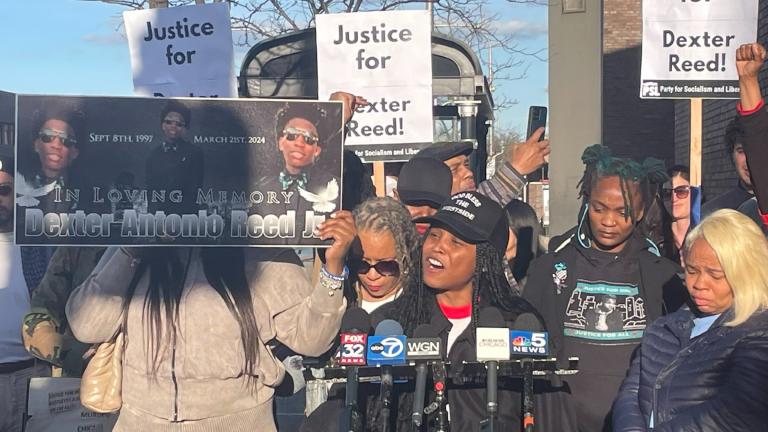This year, Sept. 21 marks Black Women’s Equal Pay Day — meaning it takes almost 21 months for Black women to equal the pay of what White men earn in the 12 months of 2021.
In 2022, that day comes more than a month later than it did in 2021 as that gap increased. Part of that gap can be attributed to the overrepresentation of Black workers in low-wage job categories.
This month, the Shriver Center released a report based on interviews with low-wage workers across Illinois. It found people like home health aides, rideshare workers and warehouse workers struggle with not just low wages but a lack of benefits, insufficient safety protections and job security.
The Shriver Center’s Audra Wilson said when it comes to wage workers, economic justice is a racial justice issue.
“Although workers of color have historically been marginalized into low-wage, low-skill jobs, the growth of the gig industry … has actually worsened this trend and this growth in gig work has led to rampant misclassification of employees, many of whom would otherwise be entitled to significant benefits and protections as independent contractors and those are individuals who are entitled to almost no protections,” Wilson said.
According to an analysis by the Shriver Center on Poverty Law, Black women make up 6% of employed workers, but 32% of home health aides are Black, a position where the average yearly salary is $23,000.
Women Employed CEO Cherita Ellens said caregiving roles such as home health aides frequently paid comparatively little.
“Typically what you’ll find is Black women are segregated … into roles where there are low wages and often in roles where they’re only earning the sub-minimum tipped wage. And so that’s going to be the direct care services, service-oriented jobs such as food services, other health care support jobs such as CMS, nursing assistants,” said Ellens. “Also in childcare … teacher assistant roles where the pay gap is pretty high, and others in retail and other supportive services. And what’s unique is that even if they are in roles where you require a degree, even in those roles, they are still underpaid.”
In its report, “The Future of Work for Low-Wage Workers,” the Shriver Center sets forth policy recommendations, including portable benefits for low-wage workers.
“For many employers, it’s more expedient to be able to rely upon gig workers to not have to pay benefits,” Wilson said. “This is why we are advocating for these sorts of protections because we recognize as this industry is proliferating that ultimately it’s going to do a lot of even more damage to this population of workers. Interestingly, for employers to try to avoid paying benefits is extraordinarily shortsighted, because once it ends up happening, you have high turnover. When you don’t offer benefits, you have people who now are not able to avail themselves of sick leave, which was very important during the pandemic.”
Ellens said that one way the wage gaps are currently being addressed locally is through an increase in unionization.
“We know that workers that are part of a union are paid more, we know that women who have the benefit of being represented by a union see even a larger difference than most,” Ellens said. “In Illinois, union membership increases hourly earnings by 14.7%. And for Black women that are part of a union, they’re making 23% more than Black women who are not in a union. So this is one of those things that we know that we need to continue to protect and continue to fight for.”
Earlier this week, Chicago announced that its guaranteed income pilot is fully enrolled; Cook County is preparing to launch its own pilot soon. Wilson said if these pilots are successful, they could provide a blueprint for other cities to help workers like the one the Shriver Center report surveyed.
“We are the second most populous county in the third largest city in the country launching pilots simultaneously,” Wilson said. “The country is actually going to be watching to see the impact of this program and we know that it's going to have extraordinary benefits in the Chicago pilot alone.”








